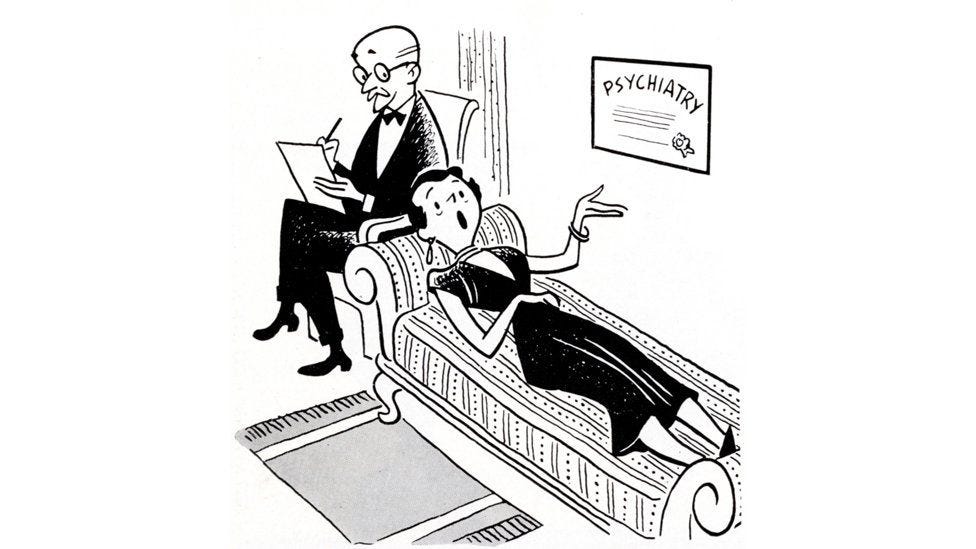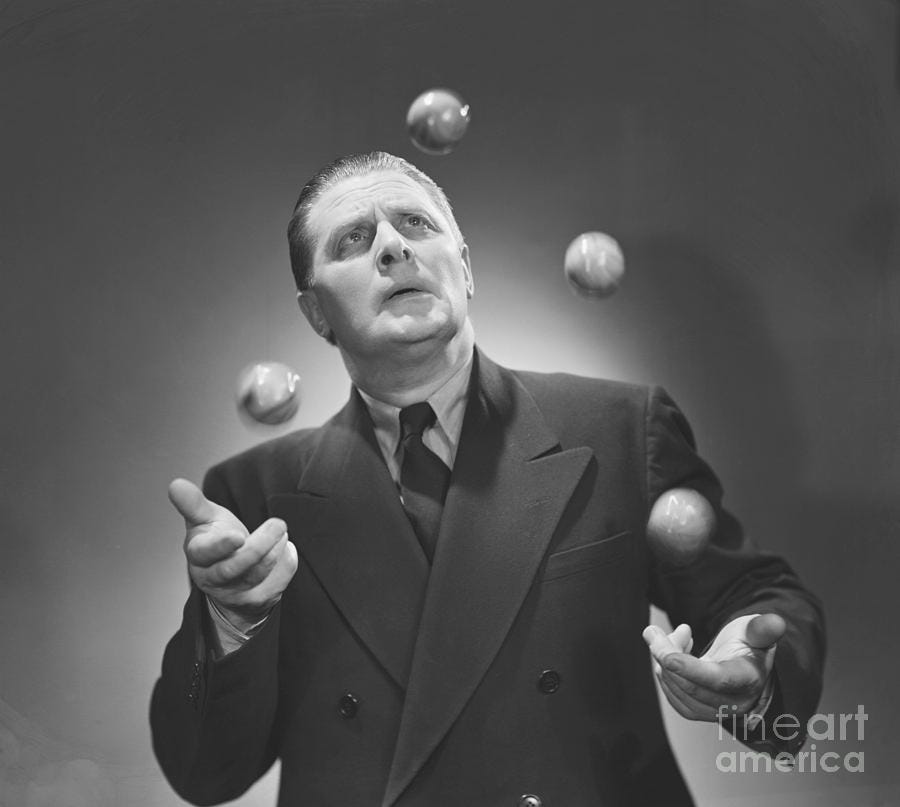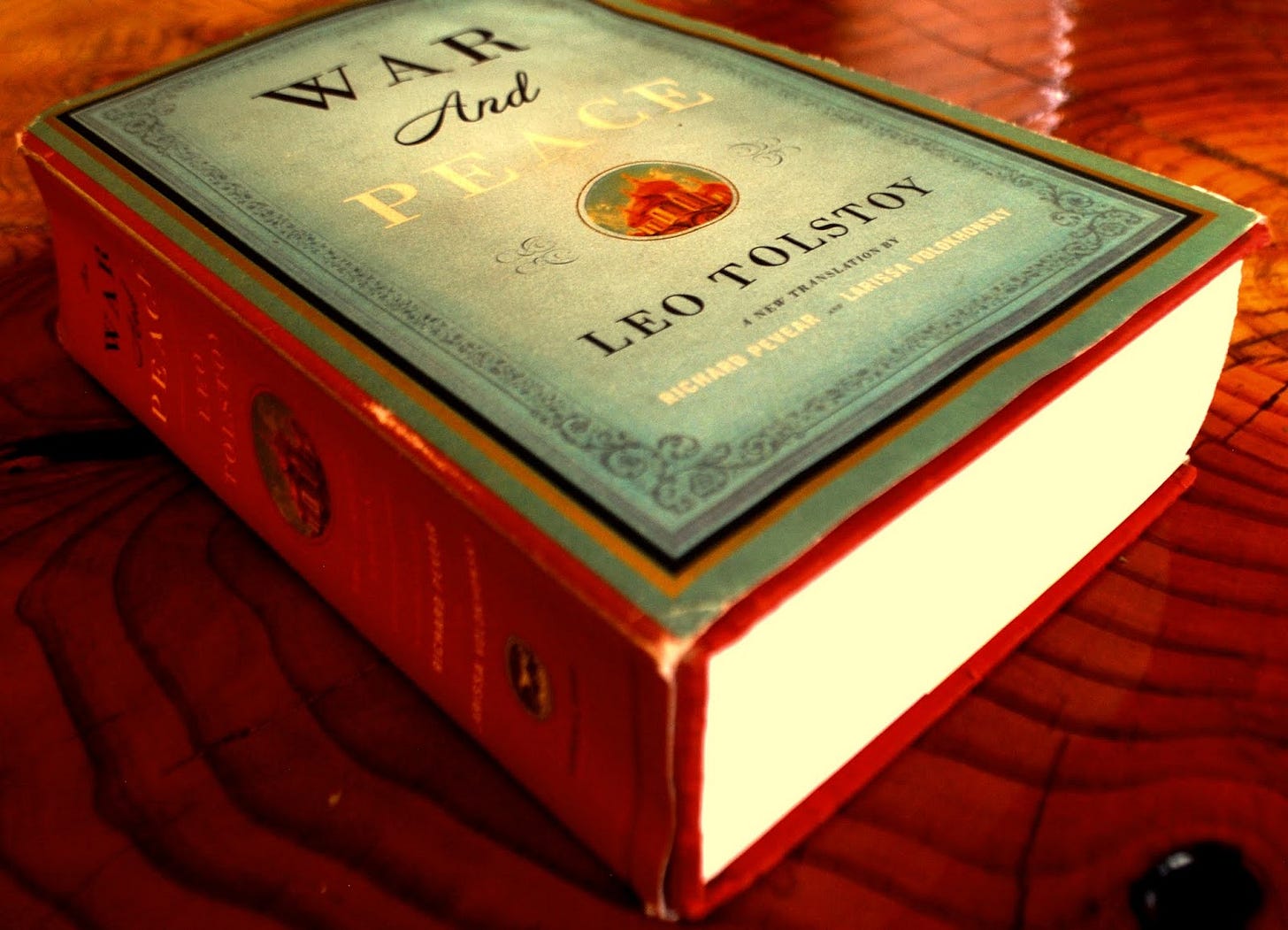I asked for your writing-related questions a couple of weeks ago, and I’ve been answering them in batches. (Yet to come: publishing questions, and ones about multiple points of view, novels-within-novels, italics, and more.) But a whole bunch of you asked about committing to, and believing in, a book—or in yourself as a writer in general.
This advice is for writers, but most of it would apply to anyone struggling with creative insecurity.
Here we go…
I Hate My Own Stuff
Q: I've been working on the same project for years (I'm on draft 4). I know that I love and care about it, but recently when I look at the page I just despise it. I think it sucks and it makes me mad. I'm trying to tell myself that this is just part of the process, but I also don't want to ignore important feelings. Does this ever happen to you? What emotions do you listen to when looking at your own work?
A: Here’s the deal: Your feelings about the book have absolutely no relation to the quality or eventual success of the book.
Again, louder: YOUR FEELINGS ABOUT THE BOOK HAVE ABSOLUTELY NO RELATION TO THE QUALITY OR EVENTUAL SUCCESS OF THE BOOK.
If you don’t believe me, take a minute to watch some American Idol auditions from back in the day. You get people coming in so sure of themselves who then violently unweave the very fabric of music. You get people coming in full of doubt who turn out to be brilliant. You also get people who know they’re great, and people who have no idea how they’ll do. Basically there’s very little correlation between confidence and quality.
The downside of knowing this is that you might then doubt yourself even when you feel you’ve written something great. (Ask yourself, though: Are you pretty sure you’re great at everything, and destined for fame? Because those are the the delusional folks. It’s a pretty specific personality type.) The upside is that when you think something sucks, you’re just as likely wrong as right.
If you read your work and notice specific, actionable flaws, that’s fantastic; now you know what to fix. If you read your work and feel generalized embarrassment, disgust, and nausea, that’s completely normal. It’ll come and go, and you’ll learn to live with it.
I Keep Starting New Books
Q: I’ve basically written two whole (bad) (well, maybe not all that bad) books and am working on a third. The first two have serious plot problems that I can’t make myself try to fix. Any tips on how to make myself focus on at least one of the first two?
A: This is a tough one because on the one hand, many writers have “practice novels” that they believe they abandoned for a reason before writing the book that was meant to be. But many more writers are just constantly moving on to greener pastures without learning how to revise. Drafting a book might be very hard, but it’s relatively easy compared to the revisions that make a book good or great.
Two questions to ask yourself:
Do you know what the plot problems are, or do you just have a general sense that things aren’t working? If you’re not sure, it would probably help to have another writer, whether hired or not (but not just a friendly reader), look at the thing and give you solid structural ideas.
Do you really deeply love one of those first two books? Would you be devastated to give up on that particular project, or do you just feel like you ought to fix one of those books up because you want to be published? If you don’t love one of those books, I’d recommend going full-throttle at the third, your most recent, and ploughing straight into revision after you have a full draft (and/or before you have a full draft). Don’t put it aside and start something else and then expect yourself to be able to go back to it with all the passion that revision requires, when your heart is already elsewhere.
I Have Gemini Problems
Q: How do you balance two career passions, especially two that are as all-encompassing as teaching and writing? Is an MFA the "right" way to pursue both simultaneously?
A: I was teaching Montessori elementary school full-time until after my first novel was published (and after most of the stories of my collection were written) so hopefully I’m well-equipped to answer this. I don’t have an MFA, but I do have an MA in literature from Middlebury College’s Bread Loaf School of English, a 5-summer program that includes creative coursework for those who want. For me, having those conversations, that time to think about writing and literature, those mentors—all that did keep me tuned in to my writer self, whom I might otherwise have forgotten.
I’m a big fan of the part-time or low-residency MFA (the kind where you keep your day job and send writing to an instructor, and have two ten-day residency sessions a year); but there’s nothing special about the MFA, unless you want a terminal degree that might allow you (along with a significant publication record) to land a tenure-track job in higher ed. Barring that, you’d do just as well to look at nonprofit writing centers in your city or online. StoryStudio Chicago, where I’m Artistic Director, has yearlong novel classes and a lot of shorter courses as well.
But I can tell you that for most people, without some kind of structure, or someone—a teacher, a peer—waiting for your pages, your writing work (which will never be urgent) will always get subsumed by what’s urgent (a lesson plan for tomorrow).
My Fingers Are Frozen Above the Keyboard in Terror
Q: My problem is that I constantly stress myself out of writing by being stressed that I haven’t written, if that makes sense. I don’t know if you’d call it writer’s block so much as writer’s task paralysis.
I don’t have a lot of time to write, so I suppose my question is how to teach myself to make better use of the time I do have, instead of stressing myself out that it isn’t enough and therefore not doing anything at all?
A: Okay, two specific homework assignments:
Keep a to-do list at the top of your manuscript. This can include big things like “work out structure” and medium things like “first draft of frat party scene” and tiny things like “check Marco’s eye color throughout.” Whatever amount of time you have, you can go through that list and find a task suitable to the slot. If you’ve got five minutes, you can handle Control+F on “eyes.” If you’ve got an hour, you can give that party scene a shot.
When you don’t have time and energy even for the above, just commit to looking at the manuscript for five minutes every day. All you have to do is open it to a random page and read what you have, and maybe tweak something. That’s enough; you’ll stay connected to the piece and full reentry later won’t feel as hard. A friend of mine once accidentally phrased this to her class as “Take it out and touch it every day,” which they liked so much that they put it on t-shirts.
Art for Art’s Sake? And who the Hell Is Art? Is He Going to Reject Me?
Q: How does one muster up the strength and courage but also true joy and sense of purpose to spend time writing (rather than creating in your head) and motivation to get your work done and out there even if it’s never good enough? Perhaps my writing will never communicate or appeal to everyone so I should finish pieces and try to publish them and have the freedom to move on to explore different stories, styles and topics with what I’ve learned from finishing the first one. And if my novel and novella aren’t able to be published, will I find the motivation to continue writing?
A: I’m not sure from this question if you’re reacting to rejection, or just anticipating the possibility of rejection. It sort of sounds like it’s the latter, in which case <tough love> what the hell are you doing?? There are writers out here coping with real rejections, huge ones, who keep on going, and you’re letting the possibility of some hypothetical reaction stop you? Send your work out and get some actual rejections and nail them to your wall for street cred!
If I’m misreading this and you’re reeling from actual rejections, well, join the club. This is what we eat for breakfast. You can do it. You didn’t get into this for fame and glory, you got into it because you had something to say. You’re never going to run out of urgent things to say, I promise.
I might have said this elsewhere, but here’s how to play The Rejection Game: Make yourself a rejection chart or even draw one of those thermometers. Then set yourself rewards. Five rejections means you get a Netflix night. Ten rejections means you get a pedicure. Twenty rejections means takeout from your favorite restaurant, etc. You won’t exactly end up rooting for rejection, but it might get you to send more stuff out. Or have a competition with a friend: Whoever gets the most rejections in the next six months has to by the other one dinner.
How Do I Start a Whole-Ass Novel?
Q: I am used to writing shorter pieces, but I am ready to dig into a novel. So, the question is how do you get yourself to commit to the project? I know what I want to do, but I keep worrying that I'm not doing things in the right order, and the concern is preventing me from giving the writing my full attention; the whole thing is so BIG. I know much depends on the individual, but I'd love to hear your thoughts as a professor and/or maybe your process near the start of a project after you've decided on a subject, done some foundational research, and gotten some preliminary pages down. I think I need some "try this next" assignments, so I stop floundering in my head and in my research and turn back to the page to start moving this from a short story to a book.
A: First of all, there’s no right order of operations. For most writers, the first phase of writing is just full on spaghetti-at-the-wall scribbling. Write scenes and sentences with no structural blueprint to firmly in mind, write down ideas, plot points, questions. Meet your characters and your setting. Very, very few writers start in some orderly fashion with a clear road map. (And the ones who do, often write something overdetermined and didactic.)
But it does sound like maybe you’re past that point, or at least you think you should be past that point. I’m not sure who you mean by “some” preliminary pages… Are we talking 5, or 80? I wouldn’t sweat any structure or order or plan until you’re either a) a third or so of the way in, or b) completely stuck and in need of some direction.
However: I would step away from the research. Pre-book research is dangerously consuming. You can go down endless pathways, in every direction, without even knowing exactly what you’ll need. If you have at least the lay of the land, you’re ready to start writing—and when you hit something you don’t know, you can leave it blank and fill it in later.
ICYMI, I’m teaching an open-enrollment Novelist’s Toolkit class online in November and December. We’ll talk about all this stuff in detail!
How Do I Keep Going at a Busy Time?
Q: I am approaching the end of my MFA. It’s part-time, and I’m doing it in addition to my full time job which is sort of high stress (I’m a surgeon) and being a mom and all the other usual stuff.
My novel is, I would say, 70% done and I’m pleased with the work as it currently sits. I can see the ending! But recently I’ve had a job offer in Canada, and in one month I’ll be emigrating with my husband and kids, and starting a new job.
It’s been so stressful and I’ve been completely unable to write. I feel like I’ve lost my voice and have started wondering if I’ll ever be able to finish my novel. How do I find its thread again? How do I pick it up?
A: First, see above about just looking at a random page for five minutes each day. Don’t go in with expectations about the work you’ll get done; you’re just reading and tweaking.
But also: You are absolutely allowed to have fallow periods. There are times when you’re in crisis mode or survival mode, and you don’t need to torture yourself and your book by writing under stress.
Also also: You’re a mom and a surgeon and a writer and a grad student, and you’re moving countries? You’re a superhuman. And when things settle down, you’ll bring those superhuman powers right back to the page.









Oh dang, Snoopy really GETS IT today.
I am not a published writer, so nothing I say really holds weight, but I did just finish a first draft of a novel in 7 months, and while it is very messy and needs a lot of work, I'm very proud of it. One thing that kept me going was reading a LOT of novels in the same genre I am currently working in, and realizing how many of them I thought were bad! Not that I strive to write something bad, but "quality," beyond the basics, is so subjective as to be basically meaningless. I read some novels this year (no names here...) that were beloved and very well reviewed on Goodreads, and sold well, but while reading them I was just thinking, "this is the worst dreck I've ever read" (some of which were from writers with multiple successful books and some movie deals!). Taste is personal, and what one person loves, another will hate.
Another thing that really helped me get started was outlining the novel and doing full-page character sketches before I started writing, and it helped so much. The outline changed a bit as I wrote, but it still provided the basic structure for what I needed to keep going. When I got to parts of the book I didn't know how to write (for instance, I learned writing violent action and fighting, especially involving multiple characters, is extremely difficult), I just "wrote through it," knowing it wasn't great, but also knowing the writing itself would open me up, and I could revise it later.
Like I said, not published here, so this is just what worked for me. I got a PhD in the sciences almost 10 years ago, and grad school completely sucked all creativity right out of me, and I've been trying to get it back for years now. I finally feel like I succeeded a little bit!